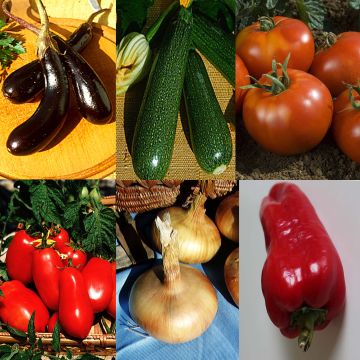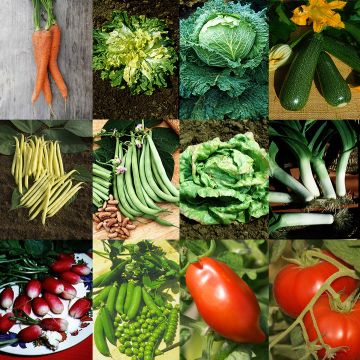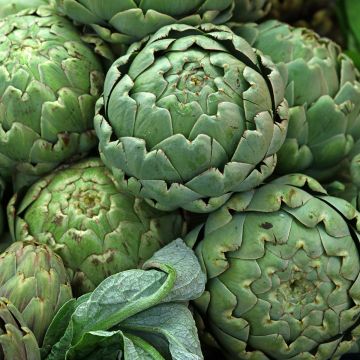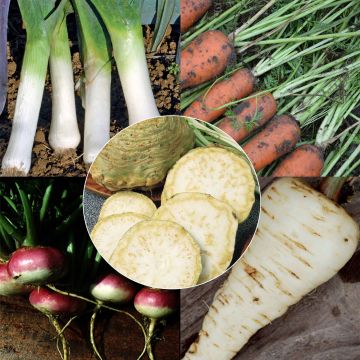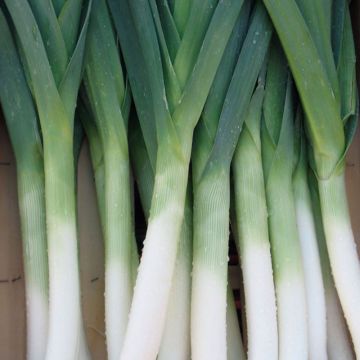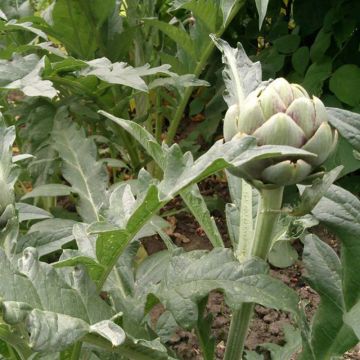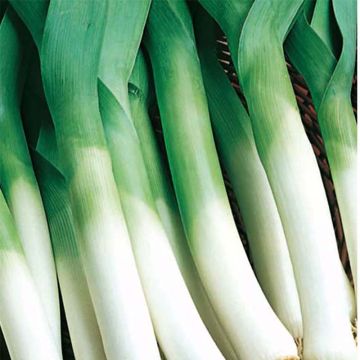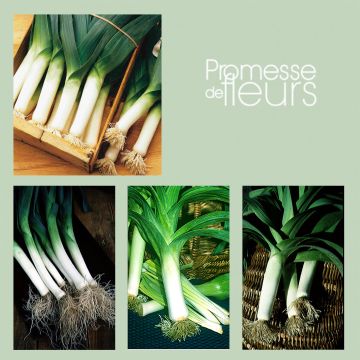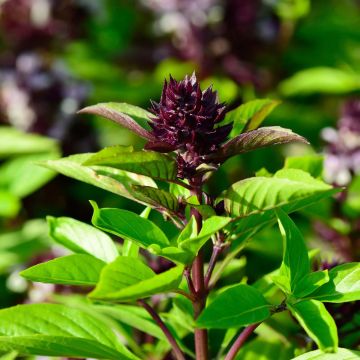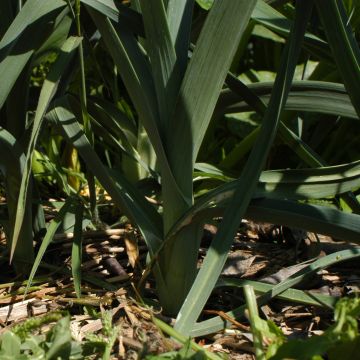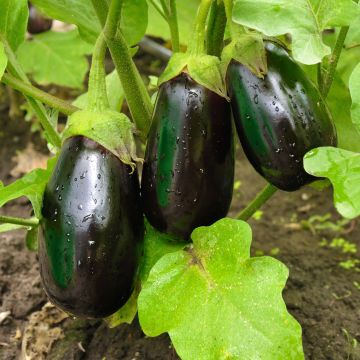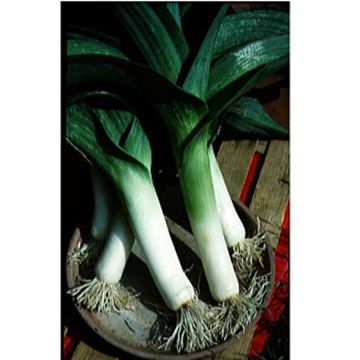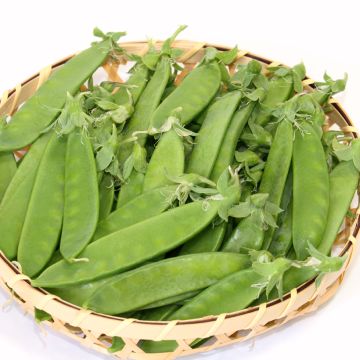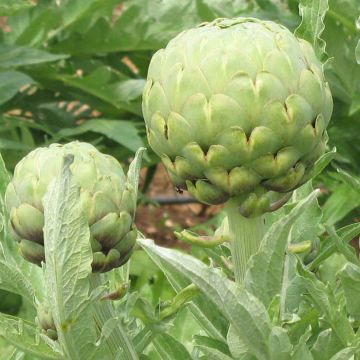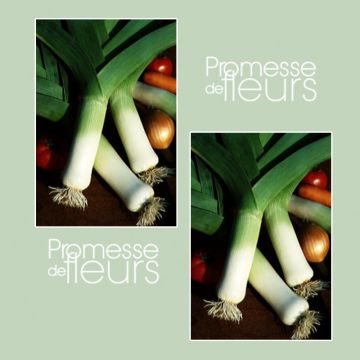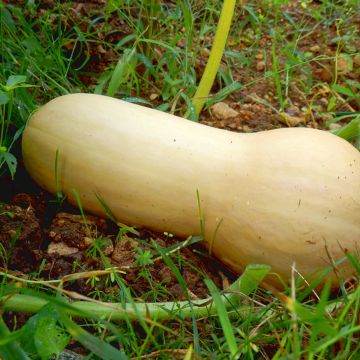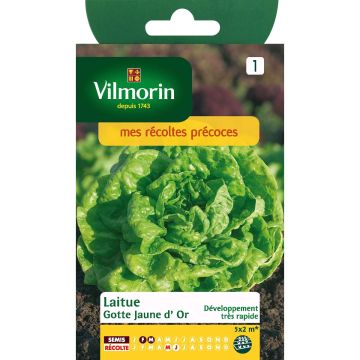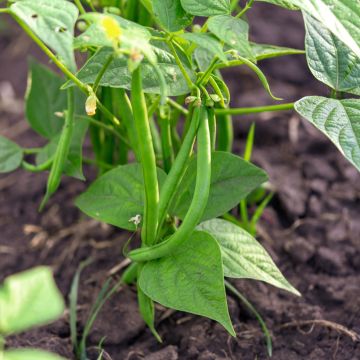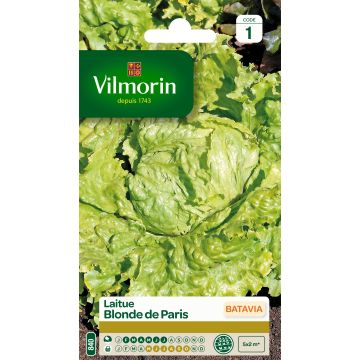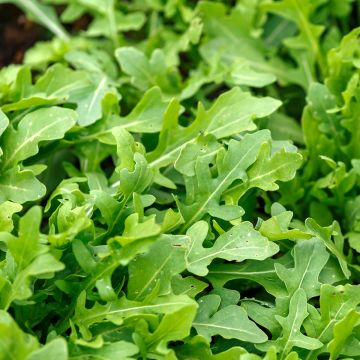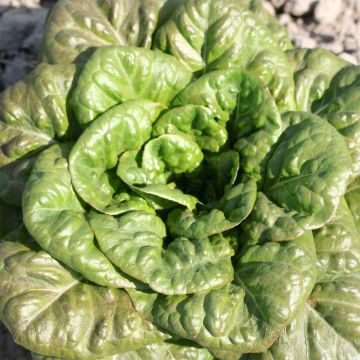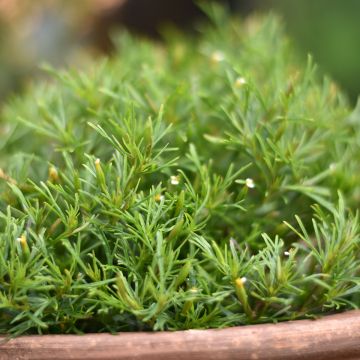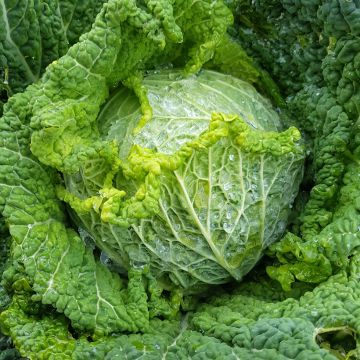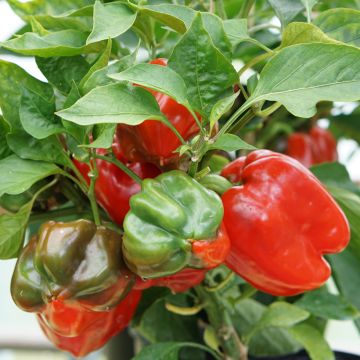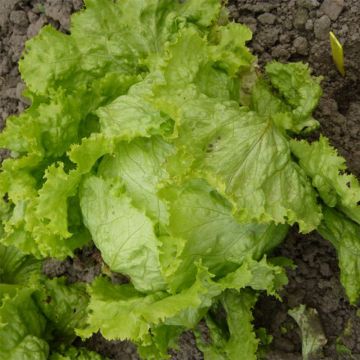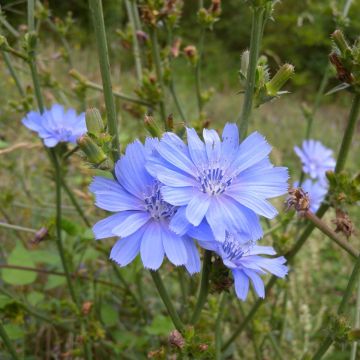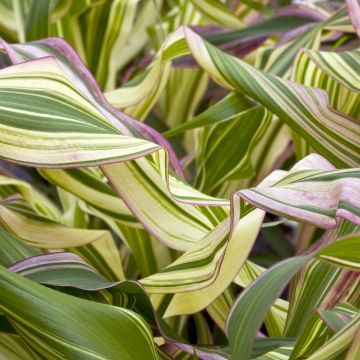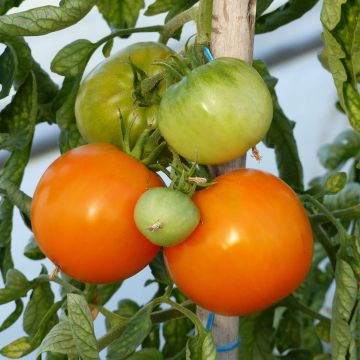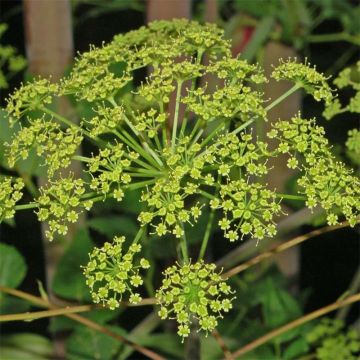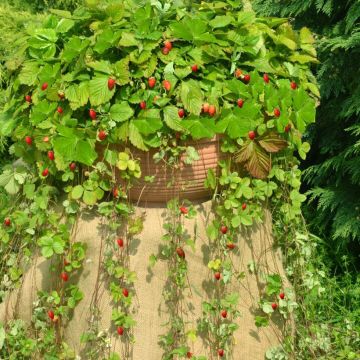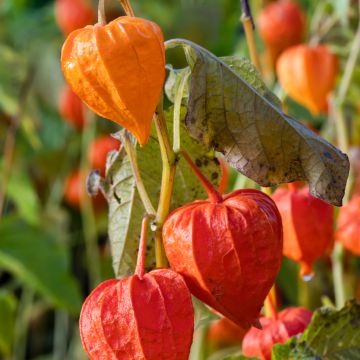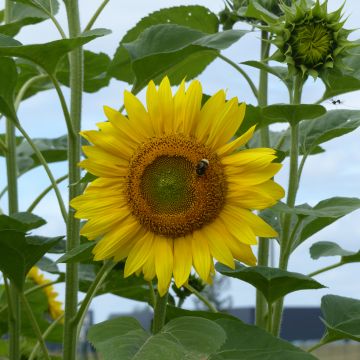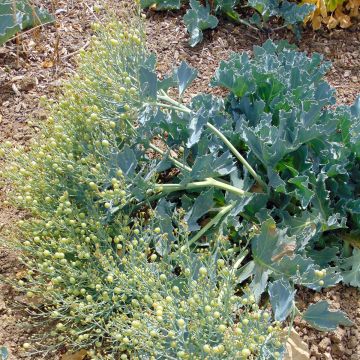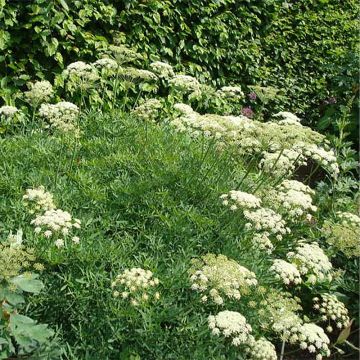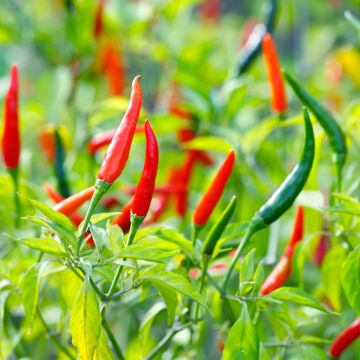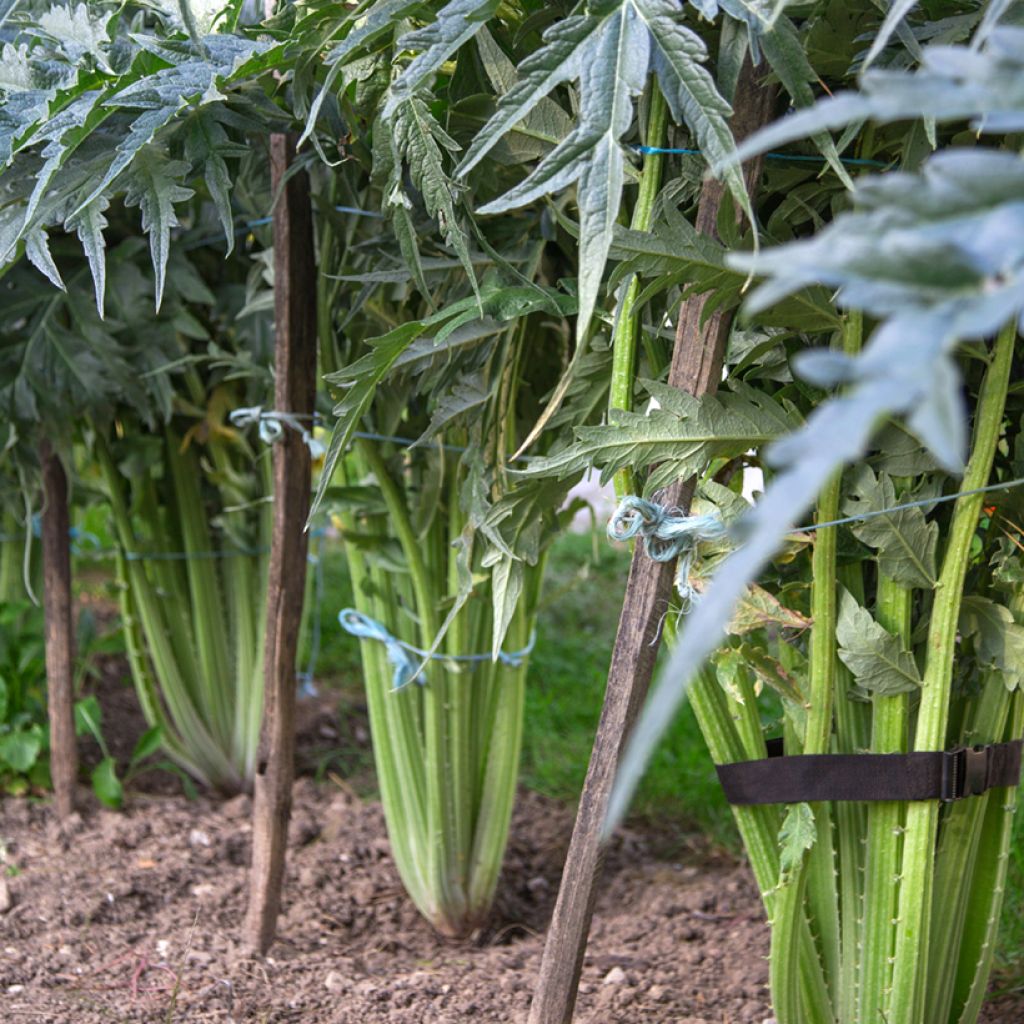

Cardoon Plein Blanc Inerme - Vilmorin Seeds
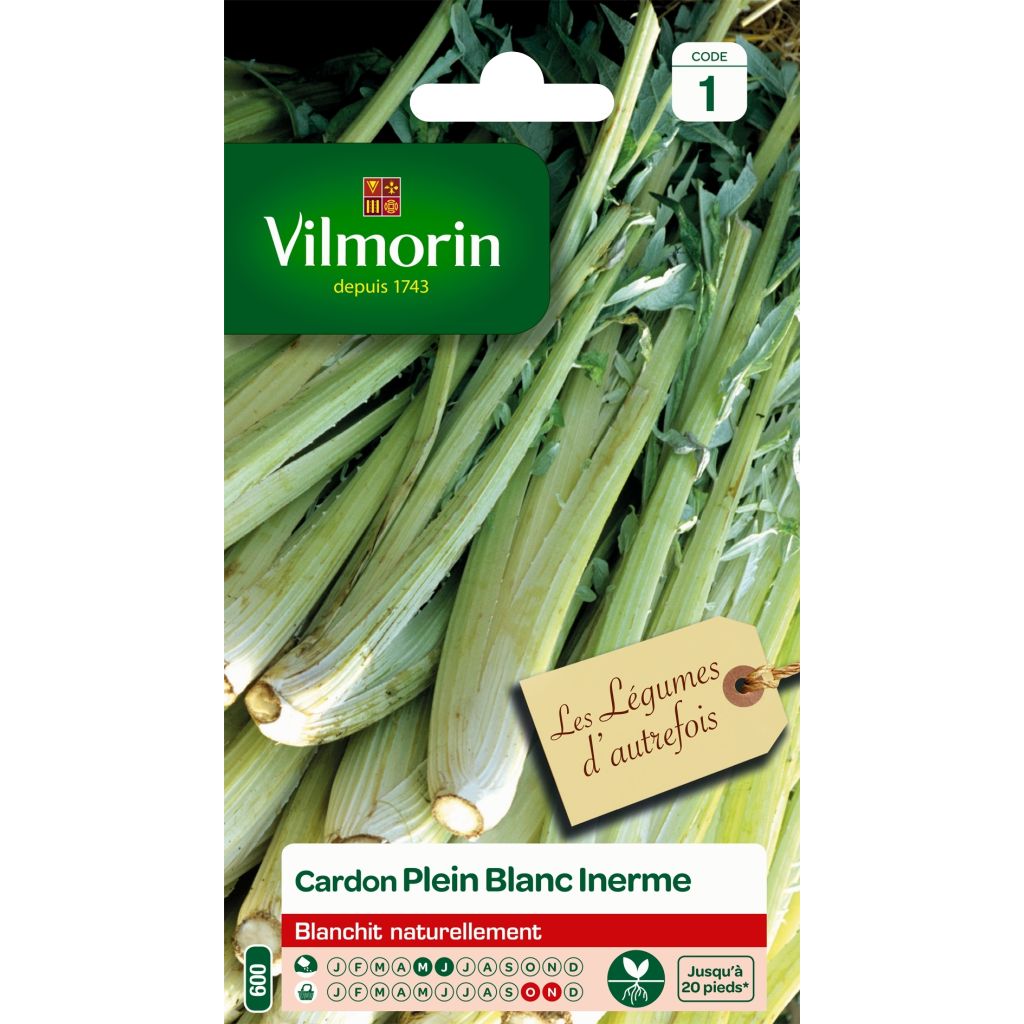

Cardoon Plein Blanc Inerme - Vilmorin Seeds
Cardoon Plein Blanc Inerme - Vilmorin Seeds
Cynara cardunculus
Artichoke thistle
Why not try an alternative variety in stock?
View all →This plant carries a 6 months recovery warranty
More information
We guarantee the quality of our plants for a full growing cycle, and will replace at our expense any plant that fails to recover under normal climatic and planting conditions.
Seed-only orders are dispatched by sealed envelope. The delivery charge for seed-only orders is €3.90.
Description
'Plein Blanc Inerme' or ‘Smooth Solid’ Cardoon is a naturally self-blanching variety with broad, fleshy ribs. The finely serrated leaves are spineless. Cardoon is a large plant related to the globe artichoke. It has long, serrated, silver-grey leaves and lavender thistle-like flowers. The spined varieties have a stronger flavour than the spineless "inerme" varieties but they are more difficult to harvest. Cardoon can be grown as an ornamental plant or as a vegetable. Make sure to give it enough space - mature cardoons can reach 1.50 to 2 m in height and 1 m in width. When grown as a vegetable, the ribs (i.e. leaf stems) are blanched then fried, braised, or tossed into a salad or a gratin.
Harvest: With the exception of self-blanching varieties, cardoons need to be blanched 3 weeks before harvesting. Blanch the stems as and when required. When deprived of light, the leaves will whiten and become more tender. Tie the leaves together in a loose bunch. Make sure air can circulate. Surround them with thick cardboard, allowing the tops of the leaves to stick out. Make a 25 cm high mound of soil around the base of the plant. After about 3 weeks, uncover the leaves and cut them off at ground level.
Storage: Fresh ribs will keep for a few days in the refrigerator. To prolong harvests throughout winter, pull up the cardoon clumps before the first frosts. Place them in sand in a frost-free, dark place, and keep them watered.
Good to know: Cardoons like rich, fertile soil. Grow them after plants from the Fabaceae family (such as peas or beans) as the soil will be enriched with nitrogen. Cardoons are relatively slow-growing plants and can be grown alongside plants with shorter life cycles such as lettuces or radishes.
Report an error about the product description
Harvest
Plant habit
Foliage
Botanical data
Cynara
cardunculus
Asteraceae
Artichoke thistle
Cultivar or hybrid
Annual
Other Vegetable seeds from A to Z
Planting and care
Sowing under cover: cardoons can be sown in trays in cold frames or greenhouses in April-May. Use rich soil, amended with well decomposed compost. Sow the cardoon seeds in seed pockets, a few cm deep. At the 3 leaf stage, thin them out keeping only the most vigorous seedlings. Once they are strong enough to be handled, they can be transplanted to their final location. Make sure to leave about 1 m in all directions between each plant.
Direct sowing: from May until July, when the soil is warmed up. Loosen the soil and amend it with well-decomposed compost. Sow 3-4 seeds in seed pockets, a few cm deep. Water generously. When the seedlings reach the 3 leaf stage, thin out keeping only the most vigorous seedlings. Make sure to leave about 1 m between each plant.
Harvest in September or October, about 5 months after sowing.
Seedlings
Care
Intended location
This item has not been reviewed yet - be the first to leave a review about it.
Vegetable seeds
Haven't found what you were looking for?
Hardiness is the lowest winter temperature a plant can endure without suffering serious damage or even dying. However, hardiness is affected by location (a sheltered area, such as a patio), protection (winter cover) and soil type (hardiness is improved by well-drained soil).

Photo Sharing Terms & Conditions
In order to encourage gardeners to interact and share their experiences, Promesse de fleurs offers various media enabling content to be uploaded onto its Site - in particular via the ‘Photo sharing’ module.
The User agrees to refrain from:
- Posting any content that is illegal, prejudicial, insulting, racist, inciteful to hatred, revisionist, contrary to public decency, that infringes on privacy or on the privacy rights of third parties, in particular the publicity rights of persons and goods, intellectual property rights, or the right to privacy.
- Submitting content on behalf of a third party;
- Impersonate the identity of a third party and/or publish any personal information about a third party;
In general, the User undertakes to refrain from any unethical behaviour.
All Content (in particular text, comments, files, images, photos, videos, creative works, etc.), which may be subject to property or intellectual property rights, image or other private rights, shall remain the property of the User, subject to the limited rights granted by the terms of the licence granted by Promesse de fleurs as stated below. Users are at liberty to publish or not to publish such Content on the Site, notably via the ‘Photo Sharing’ facility, and accept that this Content shall be made public and freely accessible, notably on the Internet.
Users further acknowledge, undertake to have ,and guarantee that they hold all necessary rights and permissions to publish such material on the Site, in particular with regard to the legislation in force pertaining to any privacy, property, intellectual property, image, or contractual rights, or rights of any other nature. By publishing such Content on the Site, Users acknowledge accepting full liability as publishers of the Content within the meaning of the law, and grant Promesse de fleurs, free of charge, an inclusive, worldwide licence for the said Content for the entire duration of its publication, including all reproduction, representation, up/downloading, displaying, performing, transmission, and storage rights.
Users also grant permission for their name to be linked to the Content and accept that this link may not always be made available.
By engaging in posting material, Users consent to their Content becoming automatically accessible on the Internet, in particular on other sites and/or blogs and/or web pages of the Promesse de fleurs site, including in particular social pages and the Promesse de fleurs catalogue.
Users may secure the removal of entrusted content free of charge by issuing a simple request via our contact form.
The flowering period indicated on our website applies to countries and regions located in USDA zone 8 (France, the United Kingdom, Ireland, the Netherlands, etc.)
It will vary according to where you live:
- In zones 9 to 10 (Italy, Spain, Greece, etc.), flowering will occur about 2 to 4 weeks earlier.
- In zones 6 to 7 (Germany, Poland, Slovenia, and lower mountainous regions), flowering will be delayed by 2 to 3 weeks.
- In zone 5 (Central Europe, Scandinavia), blooming will be delayed by 3 to 5 weeks.
In temperate climates, pruning of spring-flowering shrubs (forsythia, spireas, etc.) should be done just after flowering.
Pruning of summer-flowering shrubs (Indian Lilac, Perovskia, etc.) can be done in winter or spring.
In cold regions as well as with frost-sensitive plants, avoid pruning too early when severe frosts may still occur.
The planting period indicated on our website applies to countries and regions located in USDA zone 8 (France, United Kingdom, Ireland, Netherlands).
It will vary according to where you live:
- In Mediterranean zones (Marseille, Madrid, Milan, etc.), autumn and winter are the best planting periods.
- In continental zones (Strasbourg, Munich, Vienna, etc.), delay planting by 2 to 3 weeks in spring and bring it forward by 2 to 4 weeks in autumn.
- In mountainous regions (the Alps, Pyrenees, Carpathians, etc.), it is best to plant in late spring (May-June) or late summer (August-September).
The harvesting period indicated on our website applies to countries and regions in USDA zone 8 (France, England, Ireland, the Netherlands).
In colder areas (Scandinavia, Poland, Austria...) fruit and vegetable harvests are likely to be delayed by 3-4 weeks.
In warmer areas (Italy, Spain, Greece, etc.), harvesting will probably take place earlier, depending on weather conditions.
The sowing periods indicated on our website apply to countries and regions within USDA Zone 8 (France, UK, Ireland, Netherlands).
In colder areas (Scandinavia, Poland, Austria...), delay any outdoor sowing by 3-4 weeks, or sow under glass.
In warmer climes (Italy, Spain, Greece, etc.), bring outdoor sowing forward by a few weeks.

































